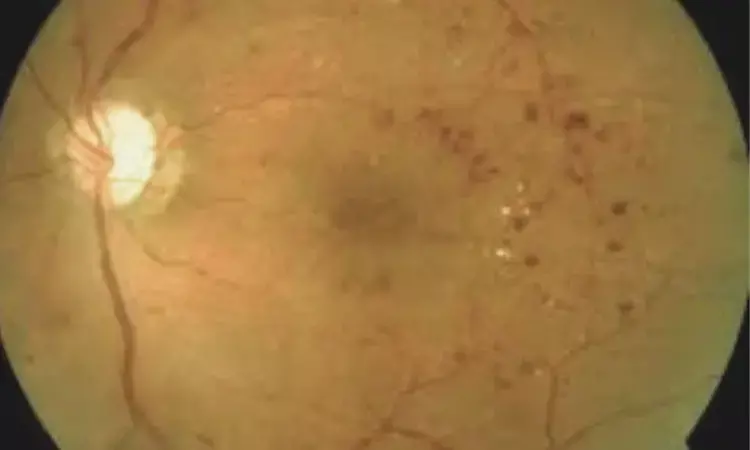- Home
- Medical news & Guidelines
- Anesthesiology
- Cardiology and CTVS
- Critical Care
- Dentistry
- Dermatology
- Diabetes and Endocrinology
- ENT
- Gastroenterology
- Medicine
- Nephrology
- Neurology
- Obstretics-Gynaecology
- Oncology
- Ophthalmology
- Orthopaedics
- Pediatrics-Neonatology
- Psychiatry
- Pulmonology
- Radiology
- Surgery
- Urology
- Laboratory Medicine
- Diet
- Nursing
- Paramedical
- Physiotherapy
- Health news
- Fact Check
- Bone Health Fact Check
- Brain Health Fact Check
- Cancer Related Fact Check
- Child Care Fact Check
- Dental and oral health fact check
- Diabetes and metabolic health fact check
- Diet and Nutrition Fact Check
- Eye and ENT Care Fact Check
- Fitness fact check
- Gut health fact check
- Heart health fact check
- Kidney health fact check
- Medical education fact check
- Men's health fact check
- Respiratory fact check
- Skin and hair care fact check
- Vaccine and Immunization fact check
- Women's health fact check
- AYUSH
- State News
- Andaman and Nicobar Islands
- Andhra Pradesh
- Arunachal Pradesh
- Assam
- Bihar
- Chandigarh
- Chattisgarh
- Dadra and Nagar Haveli
- Daman and Diu
- Delhi
- Goa
- Gujarat
- Haryana
- Himachal Pradesh
- Jammu & Kashmir
- Jharkhand
- Karnataka
- Kerala
- Ladakh
- Lakshadweep
- Madhya Pradesh
- Maharashtra
- Manipur
- Meghalaya
- Mizoram
- Nagaland
- Odisha
- Puducherry
- Punjab
- Rajasthan
- Sikkim
- Tamil Nadu
- Telangana
- Tripura
- Uttar Pradesh
- Uttrakhand
- West Bengal
- Medical Education
- Industry
Choroidal Flow Deficit Linked to Type 2 Diabetes Duration, Study Offers New Insights for DR Screening

Germany: A recent cross-sectional study has revealed a significant link between choriocapillaris flow deficit (CC FD%) and the duration of type 2 diabetes, even in the absence of clinical retinopathy. The findings, published in the International Journal of Retina and Vitreous, suggest that the decline in microvascular blood flow in the choriocapillaris is an independent indicator of disease progression in type 2 diabetic patients, regardless of retinopathy presence.
The choriocapillaris, a dense network of capillaries located beneath the retina, is essential for supplying blood to the outer retinal layers, and its functional changes or blood flow impairments have been linked to the development of diabetic complications. Diabetes mellitus (DM) causes microvascular damage due to prolonged hyperglycemia, even before any visible retinal changes occur. With this in mind, Lourdes Vidal-Oliver, University of Heidelberg, Theodor-Kutzer-Ufer 1-3, Mannheim, Germany, and colleagues aimed to investigate the relationship between optical coherence tomography angiography (OCTA) measurements and the duration of disease in type 2 diabetic patients without retinopathy, to better understand the early vascular changes associated with diabetes.
For this purpose, the researchers included 82 eyes from 82 type 2 diabetic patients without diabetic retinopathy (DR). They measured choriocapillaris flow deficit (CC FD%), vessel density (VD), and vessel length density (VLD) in both the superficial vascular plexus (SVP) and deep vascular plexus (DVP), comparing these parameters across different macular sectors. Additionally, the circularity of the foveal avascular zone (FAZc) was assessed.
To evaluate the relationship between each vascular parameter and disease duration, linear regression analysis was performed in univariate and multivariate models, with adjustments made for age, sex, HbA1c levels, and arterial hypertension.
The study led to the following findings:
- Choriocapillaris flow deficit (CC FD%) increased by 3.7%, 2.3%, 3.8%, and 4.6% in the nasal, superior, temporal, and inferior macular sectors, respectively, for each additional decade of disease duration, after adjusting for confounding factors.
- Mean vessel density (VD) and vessel length density (VLD) in both the superficial vascular plexus (SVP) and deep vascular plexus (DVP) decreased as the duration of diabetes increased, though the associations were weaker.
- Only VD in the superior and temporal sectors of the SVP showed a significant relationship in the multivariate analysis, with β = -0.12 for the superior sector and β = -0.13 for the temporal sector.
- The circularity of the foveal avascular zone (FAZc) also decreased with increased diabetes duration, but the observed association was weaker.
"Our findings demonstrate that the choroidal flow deficit percentage significantly rises with the duration of type 2 diabetes in patients without clinically visible retinopathy. This suggests that choroidal parameters could serve as potential markers for tracking disease progression and may be valuable tools in diabetic retinopathy screening and risk assessment," the researchers wrote.
"Longitudinal studies are necessary to further explore the role of choroidal changes in predicting the onset of diabetic retinopathy, which could help tailor individualized screening protocols," they concluded.
Reference:
Vidal-Oliver, L., Herzig-de Almeida, E., Spissinger, S. et al. Choriocapillaris flow deficit is associated with disease duration in type 2 diabetic patients without retinopathy: a cross-sectional study. Int J Retin Vitr 10, 91 (2024). https://doi.org/10.1186/s40942-024-00611-y
Dr Kamal Kant Kohli-MBBS, DTCD- a chest specialist with more than 30 years of practice and a flair for writing clinical articles, Dr Kamal Kant Kohli joined Medical Dialogues as a Chief Editor of Medical News. Besides writing articles, as an editor, he proofreads and verifies all the medical content published on Medical Dialogues including those coming from journals, studies,medical conferences,guidelines etc. Email: drkohli@medicaldialogues.in. Contact no. 011-43720751


